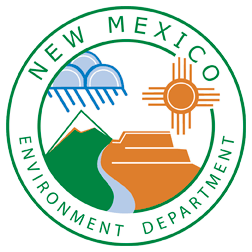The RTCR is a major revision to the original Total Coliform Rule (TCR). The RTCR went into effect on April 1, 2016. To read the full text of the RTCR, click here. Additional information is available on the Association of State Drinking Water Administrators (ASDWA) website, including slides and recorded webinars conducted by the US EPA on the RTCR. Click here to access that training material.
General Overview
Monitoring Schedule
All public water systems are required to monitor at a minimum on a monthly basis, dependent on the population served by the water system.
Drinking Water Distribution System Sampling Plan (DSSP)
The RTCR went into effect on April 1, 2016. This rule revised the Total Coliform Rule (TCR), requiring all public water systems update their previous sampling plans. A comprehensive Drinking Water Distribution System Sampling Plan (DSSP) Template and Instructions are available. The instructions explain the sampling plan requirements.
Please review the requirements noted in the DSSP and use the Sampling Plan Template to develop your water system’s sampling plan.
Click here to download the DSSP plan instructions and template.
All public water systems are required to maintain, update, and submit their Sampling Plans to DWB as system needs change.
Designating Your DSSP RTCR Sample Sites
Use the RTCR Sample Sites Spreadsheet to properly document your water system’s sampling locations. The following instructions will help you properly document your water system’s sampling locations to provide to the RTCR administrator DWB:
- Open the spreadsheet
- Click the “Enable Editing” button at the top of the spreadsheet
- Click the yellow dropdown box next to “PWS Name” to find and pick your water system
- Cell A6 will provide the number of Routine sample sites that you are required to identify in your updated RTCR Sampling Plan
- Fill in each of the required Routine Sampling Locations in Column C. Locations must be designated with either a physical address or physical sampling location description
- Fill in each of the required Repeat Sampling Locations in Column E. Repeat Sampling Locations must be located within 5 connections upstream and downstream of the address that you listed in Column C and must also be designated with either a physical address or physical sampling location description
- Include the Routine and Repeat sampling locations that you identified in this spreadsheet in your revised Distribution System Sampling Plan (DSSP)
- Save the spreadsheet to your computer
- Email the filled out Excel spreadsheet and DSSP back to DWB at the following email address: NMENV.RTCR@env.nm.gov
Guidance Documents
To better assist public water systems with RTCR, DWB has developed several Guidance Documents for use by public water systems.
Seasonal Public Water Systems
Seasonal Public Water Systems are required to conduct start-up procedures prior to opening for their season.
A Seasonal Public Water System is a non-community water system that operates as a public water system (PWS) only part of the year, starting -up and shutting-down at the beginning and end of each operating season. Examples include campgrounds, fairgrounds, seasonal food service facilities, and ski areas open during part of the year.
Owners/operators of Seasonal Public Water Systems are required to perform a Seasonal Start-Up Procedure to be in compliance with the Federal Safe Drinking Water Act. The procedure includes flushing, disinfection, and sampling their system prior to opening.
The Seasonal Guidance document to assist you through the requirements of seasonal start-up procedures. The Seasonal Start-up Procedure Checklist is required to be submitted to NMED DWB at least 10 days prior to your planned opening date.
Large Water System Guidance
Guidance to help you with the key RTCR changes for public water systems with a population of greater than 33,000.
Small Water System Guidance
Guidance to help you with the key RTCR changes for public water systems with a population of less than 1,000.
Repeat Sampling
If your water system has a total Coliform Positive (TC+) or E. coli positive (EC+) monthly routine sample, you are required to collect repeat samples. This guidance is available to assist you with the repeat monitoring requirements.
Additional Required Sampling for Ground Water Systems
The Ground Water Rule requires that all ground water systems collect triggered source samples from each ground water source that was in use at the time the total coliform-positive sample was collected.
Additionally, Consecutive Systems that receive water from a system that uses ground water, must notify wholesale system(s) within 24 hours of being notified of the positive sample. A wholesale system that receives notice from a consecutive system of a positive total coliform result under routine monitoring of the RTCR must collect a triggered source water sample from its ground water source(s) and analyze the source water sample(s) for a fecal indicator (E. coli) within 24 of being notified by the consecutive system.
Ground Water systems that have applied to NMED DWB, approved for and are providing at least 4-log treatment of viruses, may be exempt from triggered source monitoring requirements.
Triggered Assessments
Triggered Source Monitoring Fact Sheet
When sampling results show that your public water system may be vulnerable to contamination, the public water system must perform an assessment (Level 1 or Level 2) and is required to find and fix any identified sanitary defects. This guidance will assist you with the requirements of triggered assessments.
Level 1 Assessments may only be conducted by SWA, WS3, or WS4 certified operators or any Level of operator that attends an NMED-approved 8 Hour RTCR Training Session.
Level 2 Assessments may only be conducted by a WS3 or WS4 certified operator or any Level of operator that attends an NMED-approved 8 Hour RTCR Training Session.
RTCR Training
Training providers offer RTCR trainings periodically that are designed to provide system representatives with a comprehensive understanding of the RTCR requirements. The training provides the training needed for operators to become approved to conduct Level 1 or Level 2 assessments. Visit the NMED Events Calendar to check the schedule for upcoming classes.
Questions
Contact the RTCR Administrator at NMENV.RTCR@env.nm.gov with questions related to regulatory requirements of the rule.

